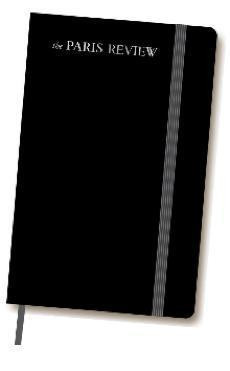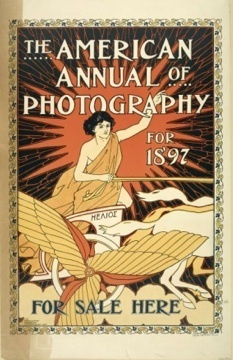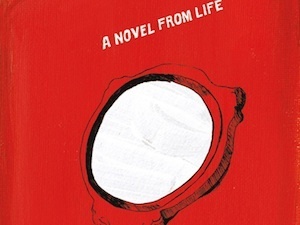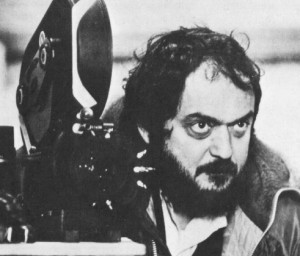The Paris Review's Blog, page 897
July 31, 2012
Paris Review Moleskines: Now in Stock
We love these limited-edition Paris Review Moleskines. It’s the iconic notebook we all know and love, stamped with our original logo and featuring a quote on the frontispiece from Dorothy Parker’s 1956 interview. Smart, indeed: get yours today!
Hacks Britannica: Reviving an Olympic Tradition of Crapness
At the 1904 St. Louis Olympics, to which Britain did not send a delegation but at which it did earn two medals by virtue of owning Ireland, the first-place finisher in the marathon, a New York City bricklayer, was disqualified for having covered eleven miles of the course by automobile. The runner-up, a British-Bostonian brazier competing for America, whose trainers had administered him strychnine and brandy and egg whites and who had been borne along by officials for part the race, was declared the victor. At the 2012 London Olympics, in a video clip shown during the opening ceremony, the comic actor Rowan Atkinson (as Mr. Bean) was digitally inserted into the beach run that opens Chariots of Fire; imagining the scene as a race, Atkinson flags, veers offscreen, then overtakes the other runners in a car, rejoining the pack just in time to win.
Such filmed-to-order interludes, which cutely recontextualize iconic personages for special occasions, are familiar from Academy Awards broadcasts, and their appearance in a live Olympic commencement marked conspicuously the London show’s direction by British filmmaker Danny Boyle. Read More »
Infinite Bikini, New Fitzgerald
Match your bikini to your beach read.
A slide show of situationist artist Robert Montgomery’s London street poetry.
The New Yorker runs unpublished fiction by F. Scott Fitzgerald.
A visit to Deep Valley.
A redditor posts every Harry Potter illustration in a single image.
“To have undertaken the thankless task of listing all the books I can recall ever reading gives me extreme pleasure and satisfaction. I know of no author who has been mad enough to attempt this. Perhaps my list will give rise to more confusion—but its purpose is not that. Those who know how to read a man know how to read his books.” Henry Miller on his favorite books.
July 30, 2012
Letter from India: Rajiv and the Potassium Parmanganate
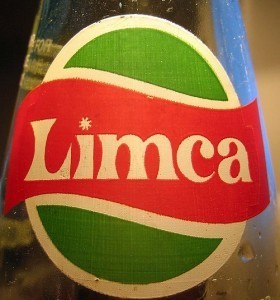 The hotel was five stars but down-at-the-heels. It was the beginning of the off-season, so there were not many guests, and there were not going to be many guests for three months. For twenty dollars, we had arranged an upgrade to the best suite. It probably could have been done for less.
The hotel was five stars but down-at-the-heels. It was the beginning of the off-season, so there were not many guests, and there were not going to be many guests for three months. For twenty dollars, we had arranged an upgrade to the best suite. It probably could have been done for less.
The suite had a lot of switches on the walls. The following morning, when our breakfast came, someone from the kitchen called and said the waiter was outside because of our DO NOT DISTURB sign. We let him in. It was seven a.m., and we had a long program that day. We did not come back to the hotel until two, and only then to get our passports from the safe—they were required for admission to a place I wanted to go.
We were waiting for the down elevator when Rajiv approached us. A member of the housekeeping staff, he was young and handsome, if a little short. His skin emitted light.
He approached quickly, withdrawing a key from his vest, saying, “Are you in room 427?”
Dreaming in French
Saint Cyprien
On the rare occasions when Georges Alain is asked to list his occupation, he simply writes, “Dilettante.” Years ago, he was more comfortable describing his occupation as “surrealist,” but for as long as I’ve known him, more than twenty years, he has stuck with “dilettante.”In that time, he has published books of his poetry, exhibited paintings and sculptures, produced albums of Madagascan guitar music, designed wine labels for a vineyard near his home in Saint Cyprien, in southwest France, and set up a small and cheerfully primitive recording studio in an old, abandoned schoolhouse outside of Belves.
Some years ago, when I wanted to record in the studio, he offered to let me work there for free if I agreed to dream only in French for the week preceding and the week following the sessions. The contract he presented me was very formal, fourteen pages long, and required multiple signatures.
“What about the week of the sessions?” I asked before signing.
“I don’t want to interfere with your process,” he shrugged. “Though, if you wish…”
It should be no surprise that Georges Alain’s endeavors have gained him more friends than money, although he received a remarkable number of donations when, in 1999, he waged a brief campaign to have coq au vin declared France’s national bird.
Writerly Recipes, Great Closers
Vintage book art.
The strange case of the Aleppo Codex.
Eat like your favorite writers. (Maybe not Fitzgerald. Or Ginsberg.)
The Boston of Infinite Jest.
The ten best closing lines in literature.
July 27, 2012
Two Versions, One Heti
I recently picked up a copy of Sheila Heti’s How Should a Person Be?, out last month from Henry Holt, to find a favorite passage. It appeared at the beginning of the novel’s fifth act, or at least it had in the first copy I had read, a Canadian version published by Anansi in September 2010. But flipping through this new edition from Heti’s American publisher, I couldn’t find it. I felt disoriented and wondered if my memory was failing me, and as I looked more closely at the American version, I saw that much else had changed: passages had been deleted or transposed; new characters appeared; objects changed value and form.
After a few minutes of searching, I found the passage I was looking for. It hadn’t changed much between the first publication and the second, but its new placement left me confused, and surprisingly disappointed. I wanted to find the book exactly as I’d left it, and felt the same as Jonathan Franzen, who recently expressed his misgivings about e-books: “When I read a book, I’m handling a specific object in a specific time and place. The fact that when I take the book off the shelf it still says the same thing—that’s reassuring.” Books often feel like restorative, reliable old friends—and although Heti’s book hadn’t forfeited its material qualities, my assurance of its fixity had been shaken.
What We’re Loving: Dorian Gray, Sex with Immortals
Last Thursday, finding myself with an hour to kill in London, I stopped into Lutyens & Rubinstein bookstore in Notting Hill. No Paris Review (sigh), but I did pick up the Summer issue of Slightly Foxed, a quarterly devoted to little essays about people’s favorite books. The clerk claimed it’s the most popular lit mag they stock. And it’s easy to see why. Crome Yellow, The Lost Oases, The Elegies of Quintilius, and a guide to British sea birds give some idea of the miscellany. Read one issue back to back and you could cross every conceivable reader off your Christmas list. —Lorin Stein
How, exactly, do a human and a god have sex? For Elizabeth Costello, the eponymous protagonist of J. M. Coetzee’s novel, it is less a question of metaphysics than of mechanics. “Bad enough to have a full-grown male swan jabbing webbed feet into your backside while he has his way, or a one-ton bull leaning his moaning weight on you,” she thinks. But when the god does not change form, how does the human body accommodate itself to “the blast of his desire”? What makes the passage so interesting is not only Costello’s amusing speculations on the impracticality of cosmic coupling but the way such a question allows Coetzee to reflect on the whole messy business of the god-human relationship. The gods may never die, he suggests, but that doesn’t mean they know how to live. —Anna Hadfield
Kubrick, Steinbeck, and Stine, Oh My!
Welcome to the National Steinbeck Center, the largest museum dedicated to an American author.
Happy birthday, Stanley Kubrick. Here is a letter he wrote to Arthur C. Clarke.
Happy birthday, Goosebumps .
Watch the trailer for the adaptation of David Mitchell’s The Cloud Atlas.
“Writers privately love two things: obsessing over rejection and watching their peers fail.” On blogging about rejection letters.
July 26, 2012
Watch: Kipling on Truth in Writing, 1933
We are grateful to Open Culture for drawing our attention to this rare film of Rudyard Kipling. From 1933, it shows the sixty-seven-year-old author giving a speech to the Royal Society of Literature (and guests from the Canadian Authors’ Association) at Claridge’s. “We who use words enjoy a peculiar privilege over our fellows,” observes the voice of the (already-fading) British Empire.
The Paris Review's Blog
- The Paris Review's profile
- 305 followers


